Watching from afar
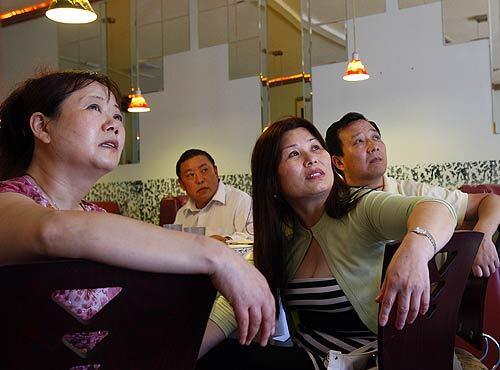
From left, Tang Xiulan, Zhou De Zhao, Liang Pinghong and Xie Cheng watch coverage of the earthquake on a Chinese news channel during lunch at Chung King Restaurant, a famed Sichuan eatery in the heart of San Gabriel Valley’s sizable Chinese community. Observers say Sichuanese immigrants began flowing into the area in the 1990s, many seeking jobs in restaurants or the import-export industry. (Allen J. Schaben / Los Angeles Times)
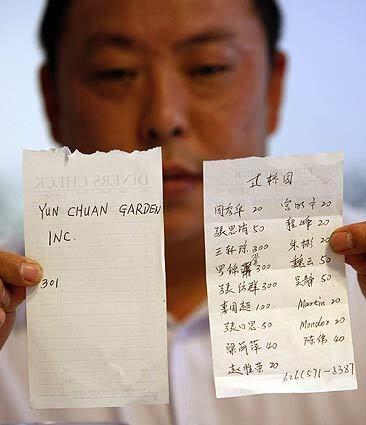
Temple City resident Zhou De Zhao keeps a list of funds donated by Sichuanese immigrants for the earthquake victims. He is returning to Sichuan on Friday to care for his elderly mother. Sichuan people help one another, Zhou said. It’s why after the earthquake, taxi drivers volunteered to transport the injured, students went to give blood and people asked to be dispatched to the rescue areas. Im going to go there and bring the support of the Sichuanese people in Los Angeles. (Allen J. Schaben / Los Angeles Times)
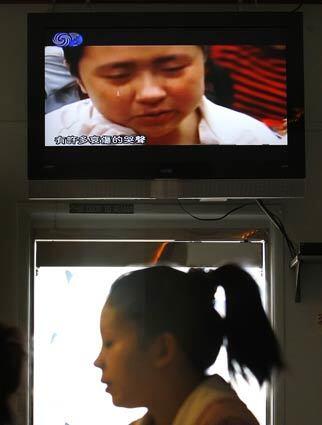
Shi Wei turns away from earthquake coverage on a Chinese news channel during lunch at Chung King. After years of being overshadowed by the cities of Beijing, Shanghai and Hong Kong, it has taken a natural disaster for the Sichuan province to get global attention. The magnitude 7.9 quake that hit the region Thursday has so far caused an estimated 50,000 deaths and destroyed parts of central Sichuan. (Allen J. Schaben / Los Angeles Times)
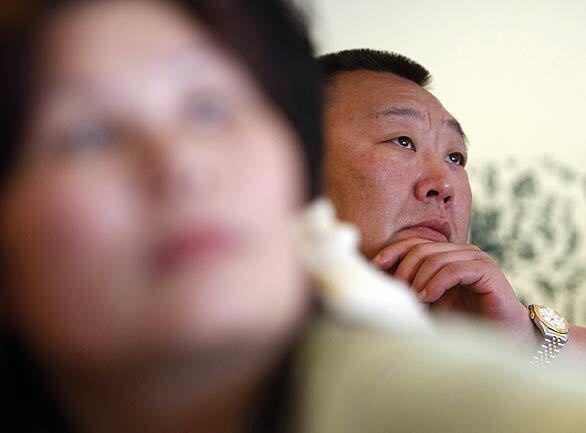
Liang Yamin, right, watches coverage of the tragedy in his native province. Sichuan, a landlocked region in south central China, is home to the giant panda. More isolated than the more renown urban centers, partly because of its mountainous topography, the Sichuan region developed a distinct dialect and cuisine that relies on an incredibly spicy type of peppercorn. (Allen J. Schaben / Los Angeles Times)
Advertisement
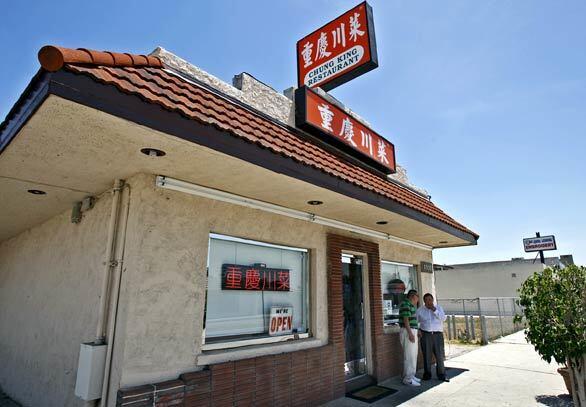
Liang Yamin, left, and Zhou De Zhao take a smoke break at Chung King Restaurant in the San Gabriel Valley while discussing the earthquake in their homeland. Despite its rich history, the Sichuan province is less well known than Beijing, Shanghai and Hong Kong. I liken it to Louisiana, Yong Chen, a professor of history at UC Irvine, said of Sichuan. Theyre like the Cajuns because they have their own language and very popular spicy food. (Allen J. Schaben / Los Angeles Times)







